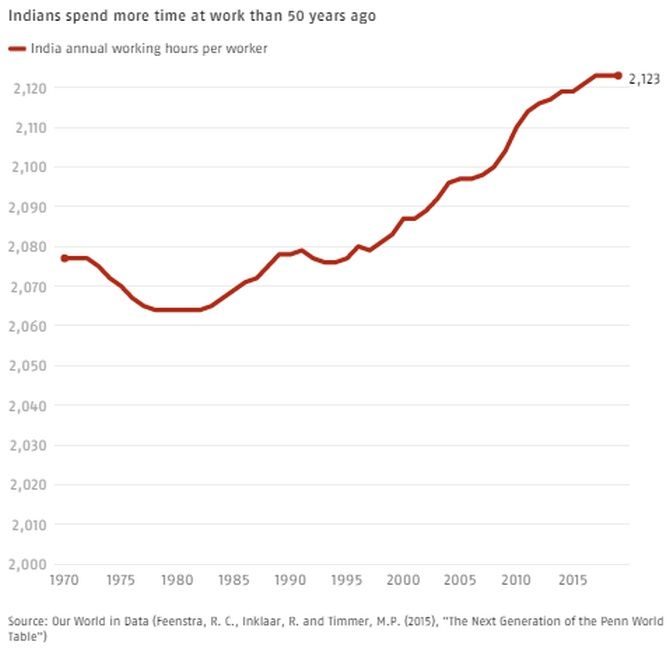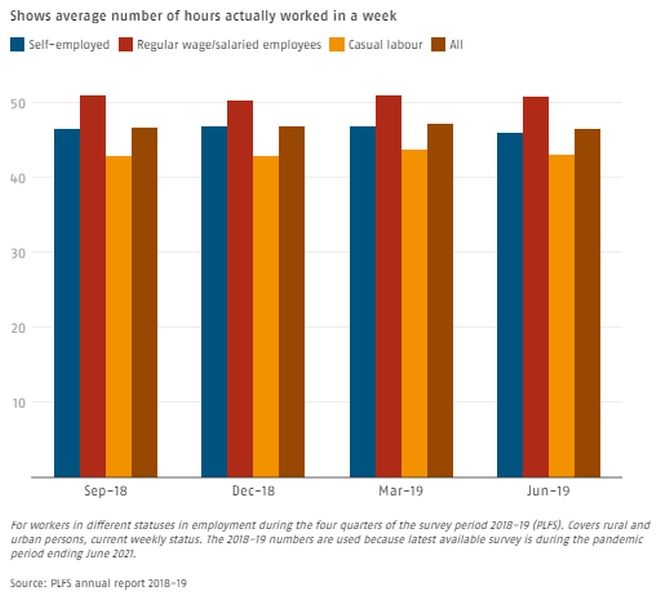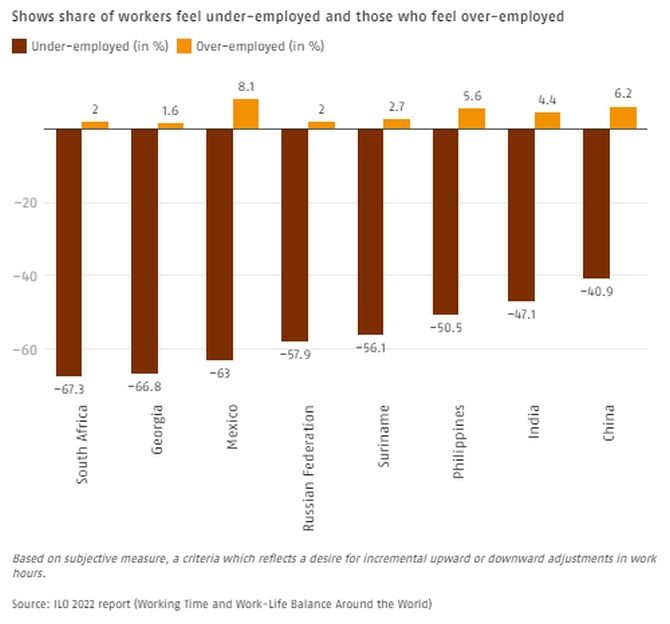
how come indians are obsessed with overworking
Last updated on March 4th, 2023 at 03:57 am
According to the government, the country’s famously long work hours are partly to blame for fewer marriages and children.
According to a Business Standard analysis of data sets, including those cited in a recent report by the International Labour Organization, Indians work longer hours than Japanese.
Before the pandemic in 2019, Indians worked 2,123 hours annually, or 25.5% more than the Japanese.
As Japan’s working hours have decreased since 1990, India’s are increasing (chart 1).

Keep Reading
The number of hours worked has only increased
According to the government’s Periodic Labour Force Survey, wage earners and salaried employees worked the longest hours in India. They worked longer than self-employed or casual workers (chart 2).

The longest hours are worked by regular wage/salaried employees
In fact, Indians want to work even longer hours. According to the ILO report, only 4.4 percent of Indians feel overworked.
Around 47.1% of workers would prefer to work longer hours than they are currently working (chart 3).

The majority of Indians would like to work even longer
A recent government report suggested that around 90 per cent of Indians earn less than Rs 25,000 a month due to low incomes.
Japan (10.1%), Switzerland (11%), and Sweden (15.5%) have higher levels of overemployment than other high-income countries.
Working time and work-life balance around the world report found that poor work-life balance can affect people’s mental health, physical well-being, and ability to take care of elderly parents or young children.
In the report, companies that implement work-life balance policies benefit from increased employee retention, improved recruiting, lower absenteeism rates, and higher productivity.
Work-life balance policies, according to a study of 45 companies across North America, were associated with increased employee retention and better recruitment, the report said.
Approximately six percent of Chinese workers are overworked, and work hours are decreasing as the country becomes wealthier.
A work-life balance may not be possible in India either unless prosperity is achieved.
Also Read:- India: Retail inflation for industrial workers jumps to 6.16% in January









